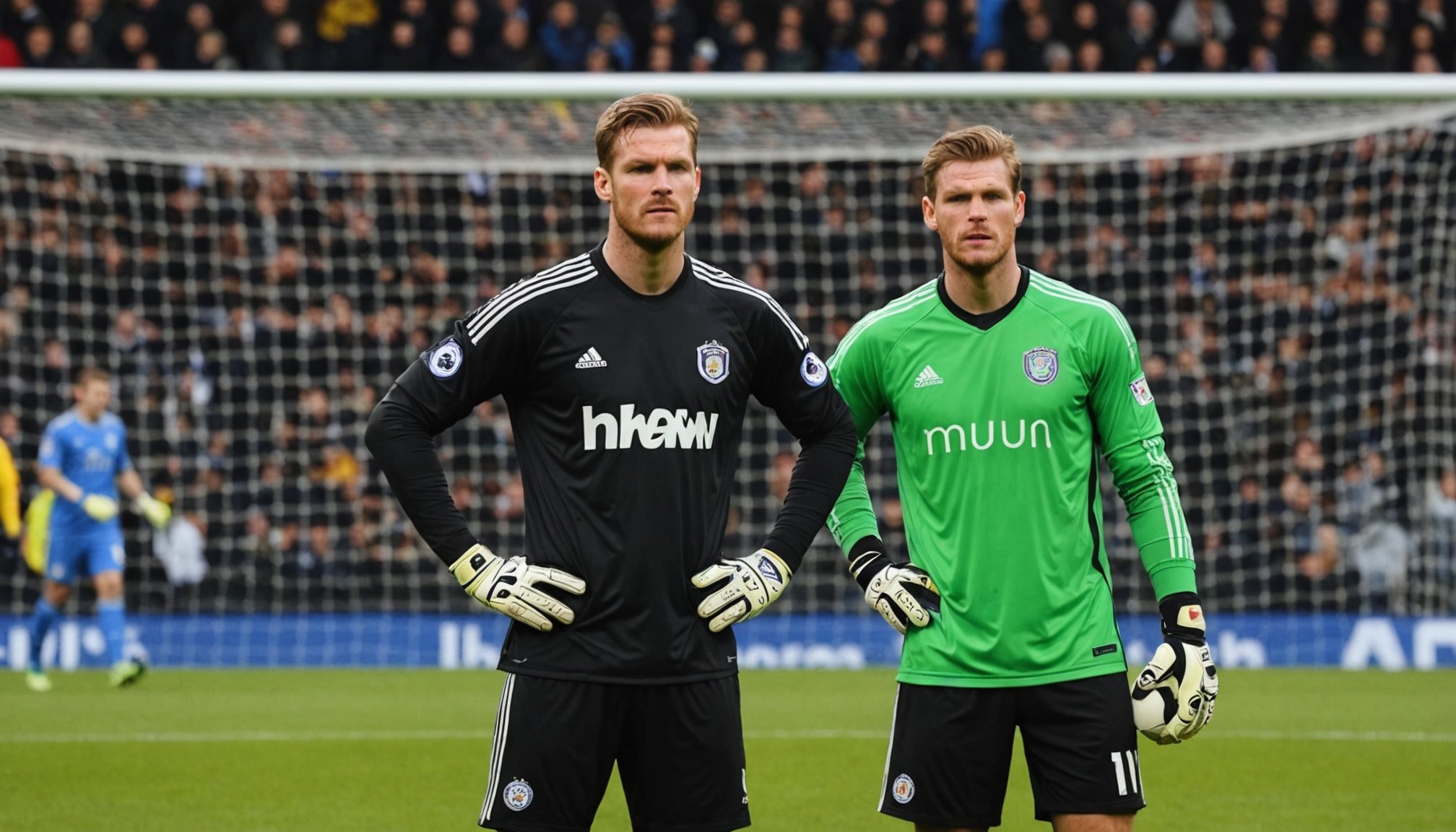Importance of Mental Preparation for Goalkeepers
Goalkeepers in football experience unique pressures unlike other positions on the field. While defenders, midfielders, and forwards share responsibilities, the role of the goalkeeper is solitary. This singular responsibility can lead to intense pressure, especially during penalty shoots or decisive moments in a match. Mental preparation for goalkeepers thus becomes essential, not just for handling physical expectations, but for maintaining composure and focus.
In high-stakes matches, mental resilience is often the difference between success and failure. Goalkeepers must be prepared to face sudden surges in pressure and unexpected challenges. Developing strong mental resilience aids in coping with mistakes, staying concentrated, and quickly rebounding from setbacks.
Additional reading : Essential playbook: proven techniques for optimal injury recovery in football players
Mental preparation impacts performance outcomes significantly. By fostering a robust mental mindset, goalkeepers can enhance decision-making, stay calm under pressure, and maintain a strategic advantage. Techniques such as visualization, mindfulness, and routine establishment are powerful tools in their mental repertoire. These practices ensure that goalkeepers are not only physically ready but mentally primed to execute their responsibilities effectively, contributing to their team’s success. Whether it’s anticipating the direction of a penalty or coordinating defensive setups, mental readiness remains a cornerstone of a goalkeeper’s performance.
Visualization Techniques
Visualization is a mental technique athletes use to enhance performance by creating vivid, mental images of success. For goalkeepers, understanding the concept of visualization in sports can lead to improved reaction times and decision-making. It’s akin to rehearsing a match in one’s mind, envisioning different scenarios that could unfold during gameplay.
Also to read : Elevate your game: essential mental techniques for footballers to enhance on-field cognitive abilities
Step-by-Step Guide to Effective Visualization Practices
- Relax and Concentrate: Find a quiet place to sit comfortably. Breathe deeply and focus your mind.
- Construct Detailed Images: Mentally picture yourself making match-winning saves. Envision the crowd, the ball, and your movements.
- Use All Senses: Incorporate sight, sound, and even physical sensations. Imagine the feel of the gloves, the roar of fans, and the view from the goal line.
- Positive Reinforcement: Always visualize success. Replace any negative images with positive ones quickly.
- Consistent Practice: Regularly practicing these techniques can strengthen mental readiness for live matches.
Real-Life Examples of Professional Goalkeepers Using Visualization
Professional keepers like Petr Čech have harnessed visualization techniques for goalkeepers to enhance their game’s mental aspect. By picturing themselves in dramatic save scenarios before the actual game, they boost readiness and confidence. Such methods illustrate that visualization can be a powerful tool in a goalkeeper’s arsenal, leading to real-world performance improvements.
Breathing Exercises
Incorporating effective breathing techniques for athletes can significantly enhance performance and well-being. These exercises not only prepare the body physically but also calm the mind, which is essential for optimal performance.
Diaphragmatic Breathing
Diaphragmatic breathing, also known as belly breathing, focuses on engaging the diaphragm fully. Athletes can practice this by placing a hand on the stomach, inhaling deeply through the nose, and ensuring the stomach expands more than the chest. This technique improves oxygen intake and encourages efficient energy use. Regular practice can lead to reduced anxiety and better focus during competitions.
Box Breathing
Box breathing is a technique used for relaxation and mental clarity. It involves inhaling for a count of four, holding the breath for four, exhaling for four, and holding again for four. This rhythmic pattern helps athletes manage stress and improve concentration before a performance. It’s an easy, yet powerful way to reset and center oneself.
Performance Enhancing Breaths
Incorporating breathing techniques like diaphragmatic breathing and box breathing into pre-match routines can markedly boost an athlete’s performance. Many players testify to experiencing reduced anxiety and enhanced focus, showcasing the profound impact of controlled breathing. Regular practice of these techniques leads to lasting improvements in both physical and mental aspects of athletic performance.
Positive Self-Talk
Positive self-talk for goalkeepers can significantly boost their confidence and performance. Imagine standing in the goal during a crucial match; your internal dialogue can make or break your game. What techniques can goalkeepers use to cultivate positive self-dialogue? Start by consciously replacing negative thoughts with more constructive and encouraging messages. This can enhance your mental state and improve focus.
Techniques like visualization and affirmation repetition are beneficial. Visualizing successful plays before they happen helps create a mental roadmap to success. Encouraging phrases repeated during practice and games develop a resilient mindset. For instance, a goalkeeper might tell themselves, “I am unbreakable,” or “My reflexes are sharp.” These affirmations serve as mental armor, empowering players to maintain composure under stress.
How have successful goalkeepers used these techniques? Many renowned keepers, like Petr Čech and Hope Solo, have attributed part of their success to mental conditioning and positive affirmations. They incorporate self-talk routines into their training, allowing them to approach each game with fortified self-belief. By emulating these practices, aspiring goalkeepers can strengthen their psychological toolkit, ultimately contributing to improved on-field performance.
Pre-Match Routine Development
Developing effective pre-match routines for goalkeepers is an integral part of their preparation regimen. An effective routine is built around several key elements, ensuring both physical and mental readiness before stepping onto the field.
A comprehensive routine often incorporates physical warm-ups, focusing on exercises that enhance agility and strength. Including activities like stretching and dynamic exercises helps goalkeepers achieve optimum flexibility and high-level performance during the match. Equally significant are visual drills, sharpening the goalkeeper’s reflexes and awareness.
Customizing routines to suit individual preferences is crucial. Each goalkeeper may respond to different stimuli, and tailoring activities that align with personal styles enhances the routine’s effectiveness. This personalization could involve specific meditation techniques or familiar music playlists, catering to the mental aspect of preparation and promoting concentration.
Consistency holds tremendous importance in these preparations. Regularly practicing established routines fosters familiarity and confidence. By repeating these steps, goalkeepers can approach each match with a sense of security and focus, knowing they have prepared in an optimal manner.
Overall, maintaining a balanced approach to both physical and mental preparations helps goalkeepers to perform consistently under varying match conditions. Embracing adaptability while holding on to consistent practices ensures readiness for any challenge during gameplay.
Expert Insights and Testimonials
In professional football, expert insights for goalkeepers are invaluable. Interviews with sports psychologists specializing in football reveal the significant role of mental fortitude. They emphasize resilience, concentration, and decision-making under pressure. A goalkeeper requires not just physical prowess but a strong psychological foundation.
Sports Psychologists Speak
Sports psychologists often suggest mental rehearsal as a key strategy. They advise goalkeepers to visualize successful saves and positive performances. This practice helps in building confidence and reducing anxiety before critical matches. According to them, regular mental exercises can significantly enhance performance consistency.
Professional Goalkeeper Advice
Leading goalkeepers share valuable advice on mental preparation. They discuss staying calm and focused during high-stakes matches. Professional players advocate for developing a routine that prepares both the body and mind. Such routines can include breathing exercises and pre-match rituals that stabilize emotions and enhance focus.
Success Strategies in Practice
Analysis of successful mental preparation strategies reveals common themes. These include maintaining a positive attitude and self-talk. Goalkeepers are encouraged to reflect on past performances to learn and grow. Embracing failures as learning opportunities is crucial. Moreover, teamwork and communication with defensive players contribute significantly to a goalkeeper’s confidence and performance.











